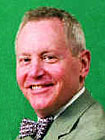Award-winning author and essayist Willard Spiegelman discusses the simple joys that can be derived from everyday activities in the Lawrence University Main Hall Forum “Sanguinity for Beginners: Seven Pleasures,” Thursday, April 29 at 4:30 p.m. in Main Hall 201.

The presentation is based on Spiegelman’s most recent book, “Seven Pleasures: Essays on Ordinary Happiness,” which examines the pursuit of happiness and its accompanying delights without reliance on religion or drugs through such activities as reading, dancing, writing and walking.
Spiegelman, the Duwain E. Hughes Jr. Distinguished Professor of English at Southern Methodist University, where he has taught since 1971, is the author of nine books and is a regular contributor to the “Leisure & Arts” page of the Wall Street Journal. He serves as editor-in-chief of The Southwest Review, the third oldest continuously published literary quarterly in the country.
Spiegelman’s presentation is sponsored by the Gordon R. Clapp Lectureship in American Studies.